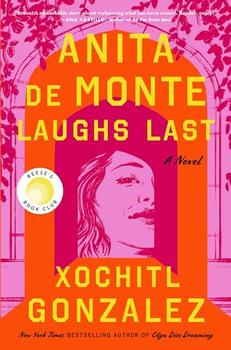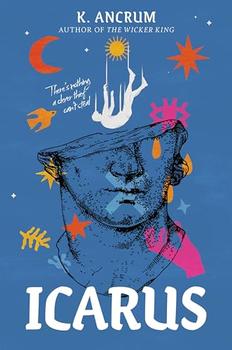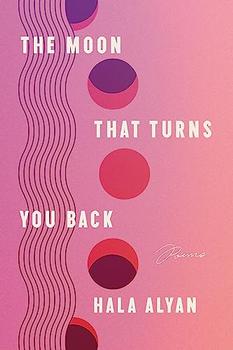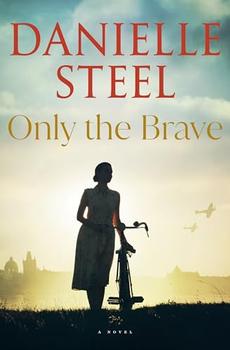An Interview with Isabella Hammad, author of The Parisian, and how her own family history effected her writing.
I noticed that one of the families in Nablus in the novel shares your last name, Hammad. Is there a connection there to your personal history?
The Hammads in the novel are based on my grandmother's maternal family; my surname actually comes from the man she married, my grandfather, who was from a separate branch of the same family. The main character, Midhat Kamal, is based loosely on my great grandfather, and the basic frame of the novel is inspired by stories I was told about Midhat when I was a child. In writing about the fictional Midhat, the principal question in my mind was: how does a young man like this, from Nablus, end up becoming "The Parisian"? My answer was in part a love story, but also a story about selfhood, dislocation, and longing, not only for people but also for place.
After being sent away to study in France during WWI, Midhat returns to Nablus and earns the nickname "The Parisian." What role does his education play in his identity and evolution as a character?
Midhat's time in France at the beginning of the novel is formative not only as an experience of rupture and rejection, but also as an object of his nostalgia. His continued obsession with France, most specifically with French clothes, is an expression of yearning for that country and the people there. His French education, both inside and outside the university, affects the way his mind develops over the timespan of the novel, as well as his aspirations, his sense of aesthetics, and his sense of reality.
The novel is full generally of people studying—books, human bodies, one another. I was interested in playing with the relationships between knowledge and power and motivation in a medical context, an academic context, and also in a colonial context. And the ways in which the act of studying is never really objective. One is always somehow involved with, affected by and affecting the object of study.
The novel effortlessly fleshes out a complicated and conflicted time in the history of the Middle East. With colonialism, Zionism, independence movements, and religious zealotry of all stripes all pulling at the region, the history is rendered here with an incredibly light touch. Is this history something you have studied formally?
At first I learned a lot by talking to people who remembered or knew things—mostly, old people and professional historians. Later on I backed this up with normal diligent historical research, in archives and reading history books and so on. I'm glad I did it this way round, because I think facts can stick better in the mind when someone tells you them directly, in their voice, than when you read them in type. Maybe it provokes the imagination in a different way. Also, there is quite a lot that has not been widely written about, details and anecdotes and rumours preserved by word of mouth, which proved equally as valuable to me as the big, public facts, if not sometimes more valuable.
Many Americans have a limited awareness of the history that shaped the region as we know it, and yet so many of the tensions at work in the early 20th century echo to the present day. What was the most important aspect you wanted to get across in the story?
I had different intentions at different times. The novel took five years, so my intentions at the beginning were very different from later on. But really the whole project was a project of learning for me, very much bound up in my own curiosity and desire to learn and above all to imagine what it would have been like to be Midhat.
Of course, there are things I've been told that people have learned from the book, which I'm glad about. What the Middle East looked like before the British and the French divided it up, for instance—that you could go directly to Damascus from Jerusalem, or take the train down to Cairo—these are things you might read in a history book or know abstractly but not really know know until you've devoted some time to imagining them. And I suppose that any stories about Palestinians before 1948 are testimonies of a kind to the actual existence of Palestinians, although of course this is not enough; one should not have to write novels about Palestinians to prove to the West that Palestinians are real people with real lives. However, as far as side effects go, if American readers take away the idea that Palestinians are real and have a history, then I suppose that's not a bad side effect.
More interesting to me than educating a reader about "what happened," however, was an idea I began to have about historical fiction as a way of imagining indeterminacy around moments of radical change. These are characters who really don't know what is going to happen to them. That made the act of writing, for me, an act of fabricating projections of possible futures onto the past. And I began to feel there might be a kind of dignity in reclaiming the past in this way, especially a past that is not well known in the West, and not assimilable into the dominant narratives of history's victors. But no study of the past can be purged of our knowledge of the present, and the project of writing about past indeterminacy must contend with the fact that we all know what happens in the end.
Are you concerned with the reception of the novel, with the entrenched opinions that exist around the current situation in the Middle East?
Palestinian stories are still not mainstream in the West, so I suppose that to tell a Palestinian story to an audience not already in the know is to stick your neck out. Sadly, writing about Palestinians in English is automatically a political act; if you are Palestinian, and say you are Palestinian, you are immediately a political being. That might make anyone feel a little anxious. But then, I think that is probably all the more reason to do it.
Unless otherwise stated, this interview was conducted at the time the book was first published, and is reproduced with permission of the publisher. This interview may not be reproduced or reprinted without permission in writing from the copyright holder.





Only the Brave by Danielle Steel
A powerful, sweeping historical novel about a courageous woman in World War II Germany.
Your guide toexceptional books
BookBrowse seeks out and recommends the best in contemporary fiction and nonfiction—books that not only engage and entertain but also deepen our understanding of ourselves and the world around us.